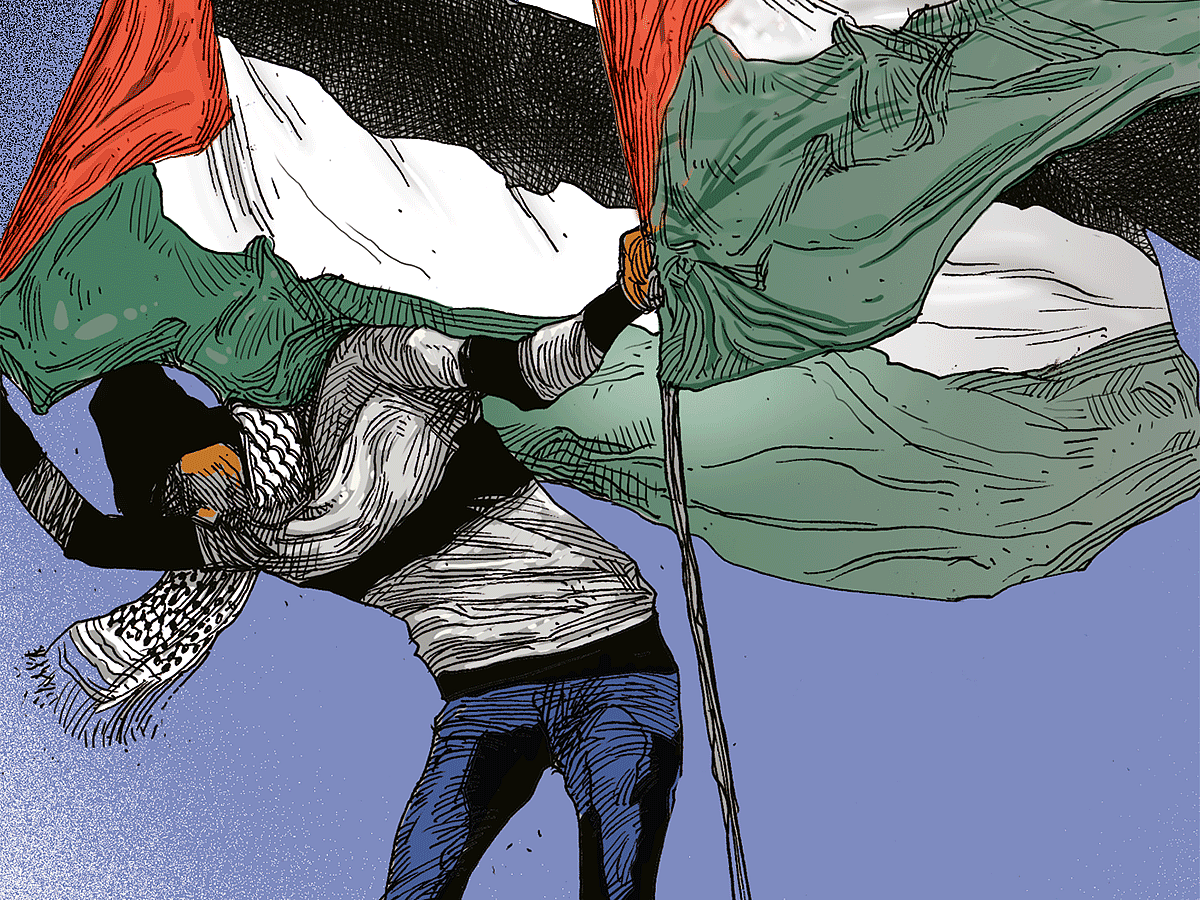In the hope of regaining the initiative and to break away from its political marginalisation, the Palestinian Authority announced, on June 9, that it has submitted a ‘counter-proposal’ to the US Administration’s ‘Deal of the Century’.
Little is known about the new Palestinian initiative. What is interesting, however, is that the counter-proposal, announced by Palestinian Prime Minister, Mohammed Shtayyeh, was sent to the ‘Middle East Quartet’, a group comprising the US, the European Union, the United Nations and Russia, which is tasked with mediating the negotiations between the Israeli government and the PA.
The futility of the Palestinian exercise is evident. Even when the Quartet was still active, it was dominated by the US which impulsively tilted in favour of Israeli priorities.
The fact that the ardently pro-Israel, former British Prime Minister Tony Blair, served as the head of the group between 2007 and 2015 speaks volumes about the group’s actual political objectives.
The Palestinian leadership’s political indecision is unmistakable. While the PA feels abandoned by Washington, it still insists on orbiting within the same political discourse that was invented by the US and its Western allies in the early 1990s.
Dismissal of all agreements
Even though PA President, Mahmoud Abbas declared, with palpable assertiveness on May 19, the dismissal of all agreements signed between Palestinians and Israel, there are no signs that the supposed fundamental shift in Palestinian politics would be followed by concrete steps towards a new unified strategy.
On the contrary, in the days that followed the cancellation of the agreements, the PA carried on with the same empty threats, while insisting that it would continue to serve as a bulwark against any acts of armed resistance targeting the Israeli occupation.
Palestinian hesitation is met with total Israeli resolve. Israeli Prime Minister, Benjamin Netanyahu, is moving forward with his annexation plans, which would allow Israel to claim nearly a third of the overall size of the occupied Palestinian West Bank.
Although the illegal annexation of Palestinian land is supposed to represent only one provision of the Trump’s ‘Deal of the Century’, Netanyahu has made it clear that he is not interested in implementing the other requirements of the Deal.
The Israeli Prime Minister told a group of extremist Jewish leaders on June 7 that there will be no freeze in the expansion of illegal colonies.
Earlier, he had argued that, whatever Palestinian entity — if any — would be formed in the remainder of the West Bank, it would not be called a state. Netanyahu understands that he is presented with a historic opportunity, where there is no accountability whatsoever for his actions, not even a gentle reprimand by Washington.
The most consequential discussion regarding the nature and timing of annexation seems to be taking place within Israel itself. From the very start, the debate among Israel’s political elites has been concerned with the so-called ‘demographic bomb’. Their aim is to acquire all Palestinian land inhabited with a minimum number of Palestinians.
Netanyahu's messages
On June 4, Israel declared that the approximately 50,000 Palestinian inhabitants of the West Bank area that is slated for annexation will not be granted Israeli citizenship. By doing so, Netanyahu wanted to send two messages — one to the Palestinians and the other to the Israelis:
To the Palestinians, Netanyahu wants to make clear that a one-state solution is not in the offing and, that by annexing Palestinian territories, Palestinians will have no legal status to demand equal rights in accordance with a democratic inclusive constitution.
His message to the Israelis is that the Palestinian ‘demographic bomb’ is still not a threat and that Israel’s Jewish citizens will continue to constitute the majority of the population, once the annexation is complete.
But what message will the Palestinians send to Netanyahu?
The truth is the PA has long served as a security buffer for the Israeli army and illegal Jewish colonies. In fact, the political justification for the PA’s existence in the eyes of Israel, the US, and their Western allies, is precisely that: providing security for Israel.
Alarmed by the grim possibilities ahead, Abbas and his supporters are desperately hoping to reposition themselves as part of the Palestinian collective anger at Israel.
But the Palestinian people, highly educated and politically savvy, fully understand that Israel would have never been able to sustain its occupation and expand its illegal Jewish colonies with relative ease, without Abbas’ direct contributions.
If Israel annexes parts of the West Bank, and the Palestinian protests are eventually contained without resulting in a serious overhaul of the Palestinian leadership, Netanyahu will be emboldened even further, which may result in more annexation of Palestinian land.
It has been proven, repeatedly, that the current political formula — a two-state solution championed by an ageing Palestinian leadership — has completely failed.
It has also been made clear that no future vision that discounts the centrality of the Palestinian people, in Palestine and throughout the ‘shataat’ (diaspora), could possibly survive, let alone bring about a just peace.
Whether the Palestinian collective response to annexation leads to another Intifada, or manifests itself in any other form, there is no escaping the fact that the Palestinian people have long been marginalised and that the time has come for them to reclaim the mantle of struggle, once more.
— Ramzy Baroud is a journalist and the Editor of The Palestine Chronicle. He is the author of five books. His latest is “These Chains Will Be Broken: Palestinian Stories of Struggle and Defiance in Israeli Prisons” (Clarity Press, Atlanta).
Sign up for the Daily Briefing
Get the latest news and updates straight to your inbox
Network Links
GN StoreDownload our app
© Al Nisr Publishing LLC 2025. All rights reserved.
